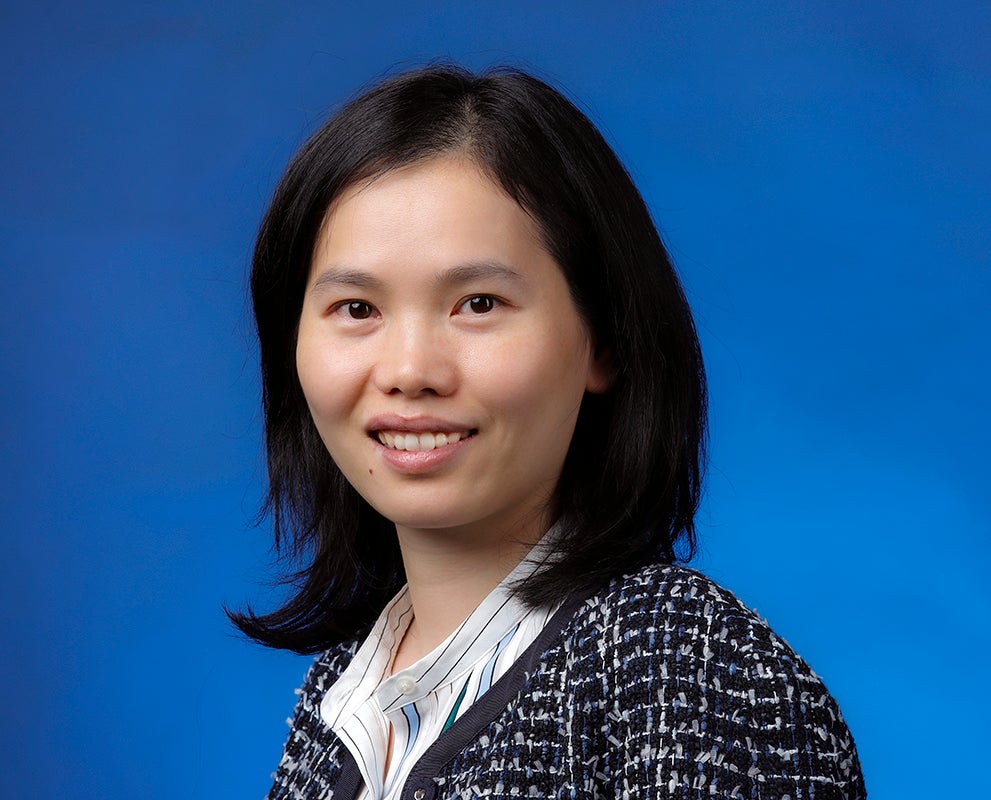UIC researchers awarded $4.65 million NASA grant to open in-space manufacturing research center
1

UIC is launching a NASA research center for In-Space Manufacturing, specializing in in-space recycling and utilizing available materials to support sustainable space exploration, development, and civilization.
Yayue Pan, associate professor of mechanical and industrial engineering (MIE) at UIC, has been awarded more than $4.6 million to open the Center for In-Space Manufacturing: Recycling and Regolith Processing (CISM-R2) at UIC. Joining Pan in the research is Professor Jida Huang and Professor Lin Li, both of MIE, and Professor Didem Ozevin of civil, materials, and environmental engineering at UIC.
The multi-million grant is awarded under NASA’s Minority University Research and Education Project Institutional Research Opportunity (MIRO). The program is focused on helping institutions raise their technological bar and enhance their capabilities and infrastructure to become more competitive in research, which opens doors to valuable experience and opportunities.
“A major challenge in space exploration is the limited availability of resources,” Pan said. “Through this NASA MIRO Center, we aim to address this limitation by developing advance manufacturing technologies to enable the recycling of waste materials in space and the processing of planetary regolith.”
Regolith is a blanket of loose deposits covering solid rock. It includes dust, broken rocks, and related materials that can be found on Earth’s Moon, Mars, some asteroids, and other planets and moons.
“In addition to establishing the center, this multi-million project aims to enhance and sustain UIC’s research and education capability in NASA-related areas and promote the inclusion of underrepresented and low-income UIC students,” Pan said. “The center will offer research assistantships for UIC students and internships at NASA Marshall Space Flight Center (MSFC) in Huntsville, Alabama.”
Pan, director of the Pan Laboratory at UIC, focuses on developing advanced manufacturing technologies. Her research addresses key challenges in additive manufacturing, including limited resolution, inferior material property, and restricted material options. Her work aims to transform additive manufacturing into multimaterial and multiscale advanced manufacturing technologies capable of producing objects with spatially varying material compositions, intricate multiscale features, and programmable material intelligence.
While there are similarities between her current research and the NASA research, the in-space context, however, presents unique challenges due to resource scarcity and extreme environments.
“Our team, with its combined expertise, will build on proven in-space manufacturing technologies endorsed by NASA, and pioneer new techniques and knowledge to expand NASA’s in-space manufacturing capabilities,” Pan said. “The research will explore new composites based on recycled materials and regolith, architected designs for exceptional properties, non-destructive evaluation methods for space-fabricated parts, material-structure-process co-design, and sustainability assessments.”
Over the next five years, the UIC team will focus on four main research areas: recycled/regolith-based composites discovery and manufacturing led by Pan; Architected design led by Huang, the director of the Design Reasoning and Evolution for Advanced Manufacturing (DREAM) Lab at UIC; Non-destructive evaluation and characterization, led by Ozevin, director of the Nondestructive Evaluation Laboratory at UIC; And life cycle assessment and sustainability, led by Li, the director of the U.S. Department of Energy Industrial Assessment Center and director of the Sustainable Manufacturing Systems Research Laboratory at UIC.
The team is partnering with Northwestern University, Northern Illinois University, and the NASA Marshall Space Flight Center. The collaborative effort extends to government, industry, and society organizations including DOE Argonne National Laboratory, Chicago mHUB, Contour Crafting Corporation, and The American Society for Nondestructive Testing.
In addition to research, the project will organize workshops, develop course materials, and increase student participation in NASA-related research fields.